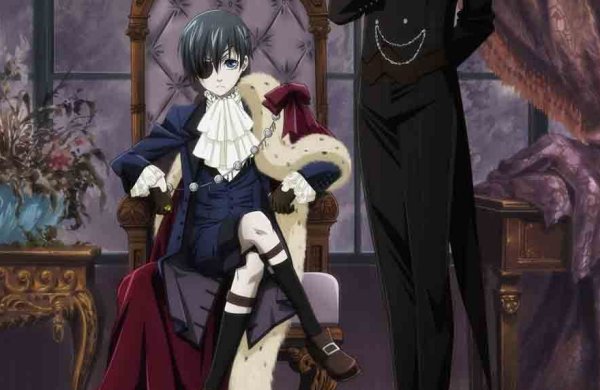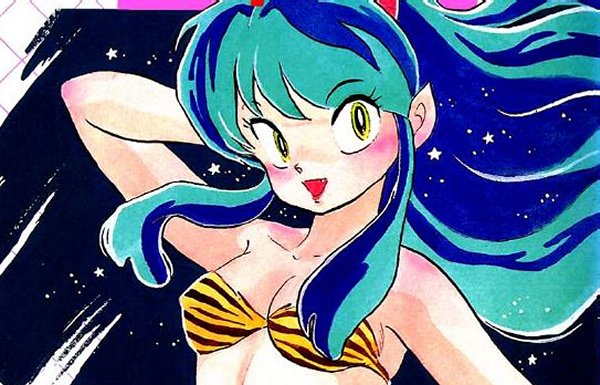
Those who cannot remember the past are condemned to repeat it.
What They Say:
“Deceiver”
Trapped on the world’s most dangerous island, Falco and Gabi will do anything to survive. Elsewhere, the public demands answers when they learn the savior of Paradis has been detained.
The Review:
Content: (please note that content portions of a review may contain spoilers)
Attack on Titan has never been shy about switching perspectives to different characters, sometimes going stretches of time without the protagonist. Early in the first season, it even presented Eren as having died in his first real combat experience, keeping up that premise for nearly three episodes. The first of them does focus in large part on Eren’s role in Mikasa’s past and subsequent episodes feature a Titan we soon learn is in fact Eren, but that stretch of time still provides opportunities to explore Mikasa and even some lesser supporting characters (especially that early in the story) as protagonists of their own stories. Moments like those are testaments to the quality of writing that can carry the series no matter who is in focus, and also serve to develop those supporting characters into fully realized people within this world, something the survivors still benefit from in every appearance.
This season has taken that concept to a much greater extreme, to the point that it can almost feel like a true ensemble cast at times. None of the established characters except Reiner and Zeke are present in the first two episodes and only Eren joins them in the next three, only identified as our protagonist after two episodes of essentially cameos. Once the classic cast takes center stage once more, Reiner and Zeke are absent from a full episode, making new characters introduced in this season the only constants throughout it. Then, once we return to Paradis and start spending a significant amount of time in flashbacks, we go back to those old characters almost exclusively, with barely any of even Zeke, Gabi, or Falco, despite all of them having come to Paradis. At this point, there wasn’t even a single character consistently throughout the season thus far. To continue on that trend, now that we’re done with those flashbacks for the moment, we don’t even see a hint of our protagonist (outside of a split second of repeated flashback material) despite his prominence in the active story – there’s not much of anyone, in fact, except for the stars of this episode, the kids we haven’t seen for a few episodes.
Speaking of some of that early material from the series, though, the most consistent theme throughout every piece of this episode, even the brief bits not centered on Gabi and Falco, is one of calling back to earlier moments in the story, seeing the effects of those events years later, and drawing more ironic parallels as this season has done so often. In fact, one of them ties together the two components of that Mikasa-centric episode immediately following Eren’s apparent death way back then. As Mikasa remembered the day her life was changed by witnessing her parents being murdered, getting kidnapped, joining Eren in killing her attackers, and reconfiguring her worldview to center on the boy who saved her from a worse fate, she saved some other innocent civilians from certain death, including a young girl who looked at her with similar awe. Now that girl forces her to confront her connection between those events in the opposite direction: while Mikasa had used the life Eren saved as her foundation to save others, she must now face the reality that someone she saved is following her lead in acting against orders out of a sense of obsessive reverence to their savior. As much as Mikasa tries to spout the party line, she can’t ignore her own hypocrisy, especially since her dedication to Eren since he saved her form a much more core component of her identity than the current agenda of the Scouts.
Although clearly misguided, these younger recruits led by Floch, almost as unlikely a trusted ally to Eren as Zeke, in theory feel a bit more like the Scouts we knew and loved for much of the series. The system was corrupt, and the Scouts were going to fight against that no matter what it took. Now that they’ve become the ruling regime, they find themselves inexorably falling into the same traps and suppressing information for their own ends. Before Mikasa is reminded of the moment that shaped her life in the same way that her heroism in Trost shaped the life of the young Scout she was detaining, Hange is similarly reminded of a heinous executive of the corrupt rulers of the time warning her that this is the fate of all those who end up in power. Absolute power corrupts absolutely, and even if none of these decisions are made out of selfish motives, the image of Hange turning her back on the same people she herself saved from those villains during that arc speaks volumes to the cyclical nature of sometimes unintentionally corrupt systems. The Scouts have become victims of themselves in some ways, and they’re finding that getting to the top and being able to realize your goals means sacrificing the idea of being a hero.
This through line is most significantly explored in the main part of the episode that focuses on Gabi and Falco escaping from their imprisonment and facing the horrors of Paradis. Falco has managed to come out of his Marley upbringing relatively well-adjusted and capable of critical thinking, but Gabi has succumbed to a lifetime of propaganda so tragically that it defines her entire identity and worldview unshakably. Here she meets her greatest trial, not only pitting her against a lovely group of the devils she despises so much but also continuing to tie her to dramatic irony relating to the victim of her bullet.
With everything Attack on Titan has been doing lately, it’s only natural that Gabi is saved by Eldians from the Braus Ranch, and specifically a girl we saw Sasha save from a Titan earlier in the series just as Mikasa had saved the girl who now presents her with a challenging dilemma. The writing is rather brilliant in how it weaves together all of these seemingly disparate threads into an incredibly rich and well-realized future for the world we saw in the previous seasons, but it sure does lay it on thick there. Our dearly departed Sasha is explicitly mentioned as an amazing hero who would fight off mindless Titans with her bare hands just to save the innocent, and that she would save Gabi as well. Just as the children we saw Mikasa and Sasha save, neither of whom we ever expected to see again, have both used those moments in their live as motivation to save others, the latter of them hopes to pass the legacy down to Gabi, neither party necessarily aware that the progenitor of this goodwill was killed by its latest recipient.
The irony is as strong as the thematic consistency we see viewed from several different angles. The role Hange finds herself in sits on one end of the spectrum while this is on the other end. The former depicts how the faults of a system can be inherited by its successors even with the best of intentions while the latter depicts how good deeds can be inherited through the generations in the same way. The best way to learn from the past is to avoid the mistakes of your predecessors while emulating their best qualities, but that’s often a lot easier said than done. Now Gabi is struggling with her desire to reject this demonstrably virtuous action due to her prioritization of beliefs she doesn’t want to challenge, not unlike Mikasa.
In learning of Sasha’s heroism, Gabi is forced to face the fallacy of the concept of ancestral sin that she reveres as gospel, and by which she herself is chained. When Falco watched Eren ask Reiner why he had to watch his innocent, loving mother be eaten by a Titan and the latter had no response except intense, justified guilt, it opened his eyes to a duality to this animosity that he always felt to some degree. Now he watches a very different version of this as Kaya asks the same question to Gabi, who insists that the guilt is on the victims for the supposed sins of their ancestors.
Individuals are just that, not the institutions that they become part of, not a racial grouping to which they belong, and not their ancestors. Like Reiner before he left Marley, Gabi was comfortable with the idea that Eldians were a sinful people and that Paradis was full of devils, because all the Eldians around her thought the same things she thought, and she had never met one from Paradis. Now that she has, now that she’s faced with a very human and painfully personal account of an individual suffering for the sins of some unseen ancestor, it’s a lot harder for Gabi to reduce that individual to a race and remain confident that the tragedy and trauma that family suffered was deserved. She tries, but her fallacious premise crumbles so easily that she quickly finds herself in a desperate struggle against simple reason. Reiner faced a similar challenge after coming to Paradis, and it’s a trend we’re continuing to see with Marleyans throughout this arc.
These ideas all sound so obvious to anyone with free thought, and to lay it out so plainly comes across as needlessly heavy-handed, but as has been another theme throughout this season, Gabi represents the result of indoctrination to the point of effectively brainwashing, and seeing someone realize how flawed their strongest beliefs are is as fascinating as it is unpleasant. Gabi needs this, and their world needs more people like Gabi to come to these revelations, but the process is essentially forcibly reprogramming a mind full of conviction. Gabi still has a long way to go – the events of this episode should be the serendipity that sets her on a path of understanding and redemption, but she rejects that potential so violently that I could just as easily see her causing further tragedy and/or becoming a victim.
In Summary:
For another relatively quiet aftermath episode on Paradis, this one takes a very different approach while weaving together the season’s most consistent themes poetically and profoundly. Past seasons are referenced not for cheap nostalgia but to show how each action affects the future, and how later generations emulate their predecessors, whether intentionally or not, whether for better or worse. Parallels continue to multiply so explosively that every aspect of the series seems to have some thematic connection at this point, and dramatic irony continues to proliferate relentlessly. These reminders from the past all resurface to challenge several of our current prominent characters with moral and ethical dilemmas that force them to address contradictions that shape their respective identities. Even if we still don’t have much really going on and the writing isn’t always as subtle as it’s been in the past, it’s still a powerful case of character study that sets up a lot of very earned growth.
Grade: A-
Streamed By: Crunchyroll, Funimation, VRV, Hulu



